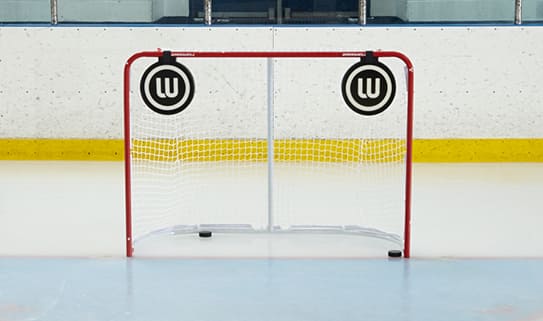Triangle® Mastercard® $150 Bonus CT Money®††. New Cardmembers only. Conditions Apply. Ends May 31.
Learn MoreEarn CT Money®* at Petro-Canada™ and Gas+ this long weekend when you fuel up with Triangle Rewards®. *Conditions apply.
Learn MoreThis paragraph should be hidden.
How to choose a hockey net
The right hockey net can help you improve your skills and get the most out of the game


- SIZE
- MATERIAL
- NETTING
- SPECIALTY NETS
- FEATURES
Small nets
For young player ages 5 to 8 years old, you’ll want a smaller, 54-inch net. This allows them to practice their puck saving skills without having to navigate excess net.
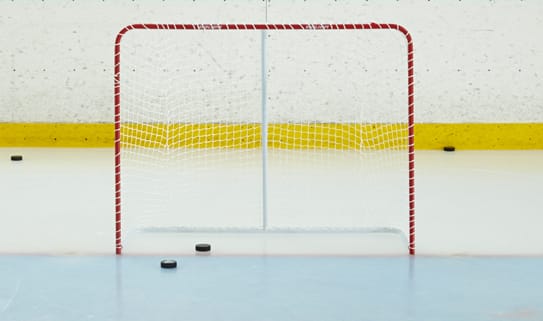
Medium nets
For hockey players ages 9 to 12, choose a 60-inch net. Keep in mind that as nets get bigger, they also get heavier, making them more difficult to transport and store.
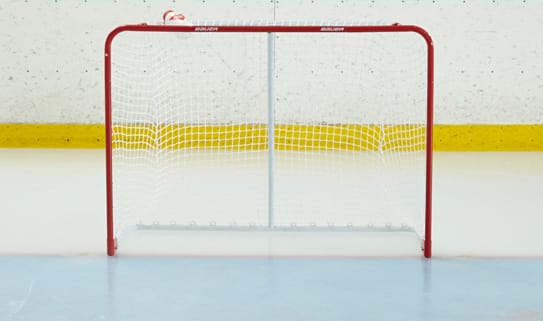
Regulation nets
Regulation nets are 72 inches wide. They are ideal for hockey players aged 13 and up. Larger nets are also more durable than smaller nets, so they have longer lifespans.
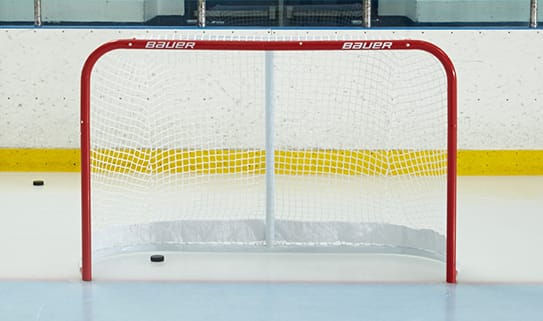
Steel posts
Hockey nets with steel posts are durable and have long lifespans, but they’re also heavier than PVC, making them harder to transport. Some nets with thicker steel posts can take puck impacts up to 100km/h.
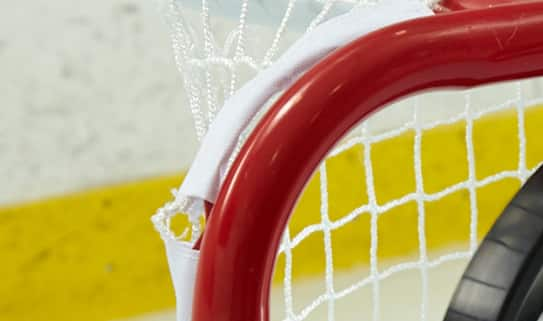
PVC posts
PVC posts on hockey nets are lighter, making the nets easier to transport. They work well for playing with balls, but they’re not as durable as steel.
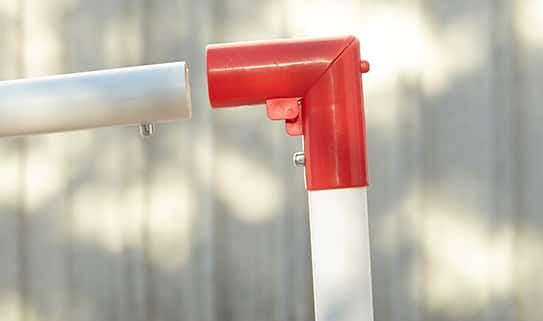
Denier
Denier measure the weight of the weave of nets. As the denier measurement increases, the durability of the net increases.
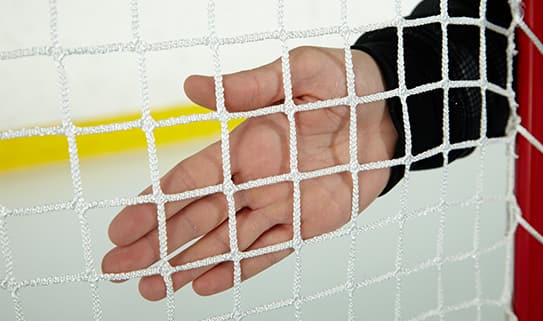
Assembly
Consider the ease of assembly that you require for your net. Some nets need to be strung by hand, some can be attached to the posts with Velcro, and some are attached to sleeves that can be threaded onto posts.
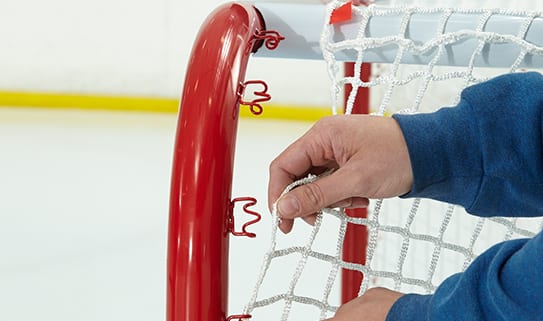
Mini hockey
These small hockey nets are used for indoor play with mini sticks.
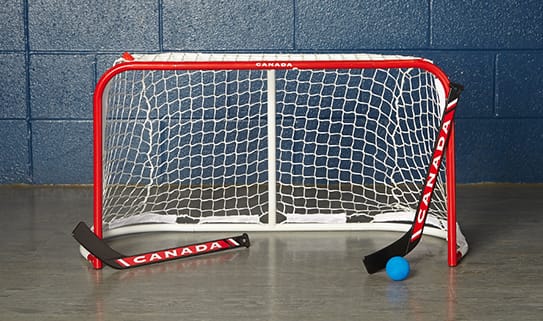
Pond hockey
These hockey nets are designed to be used with puck, so are built stronger and heavier than other nets.
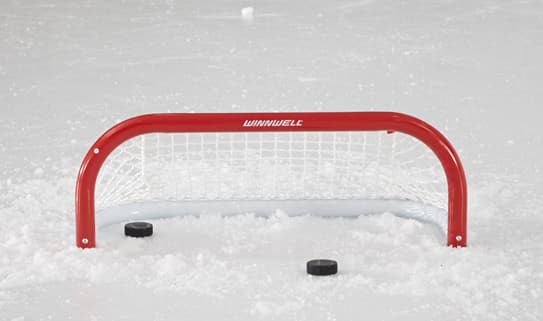
Backstop
These hockey nets, which extend beyond the goal space, are great for high performance training and to protect the space behind the net.
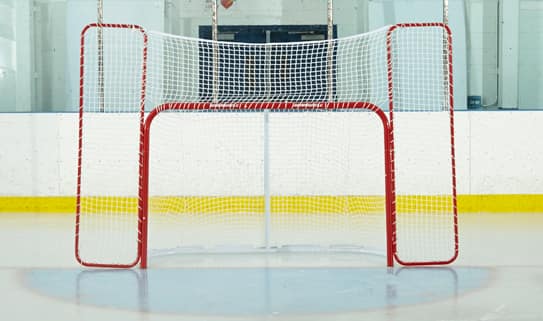
Folding nets
If you are short on storage space or will be transporting the net regularly, look for a hockey net that is collapsible or can be folded up.
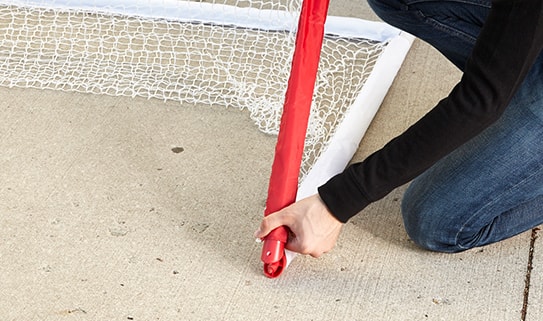
Shooting targets
For targeted training, look for a hockey net with targets.
